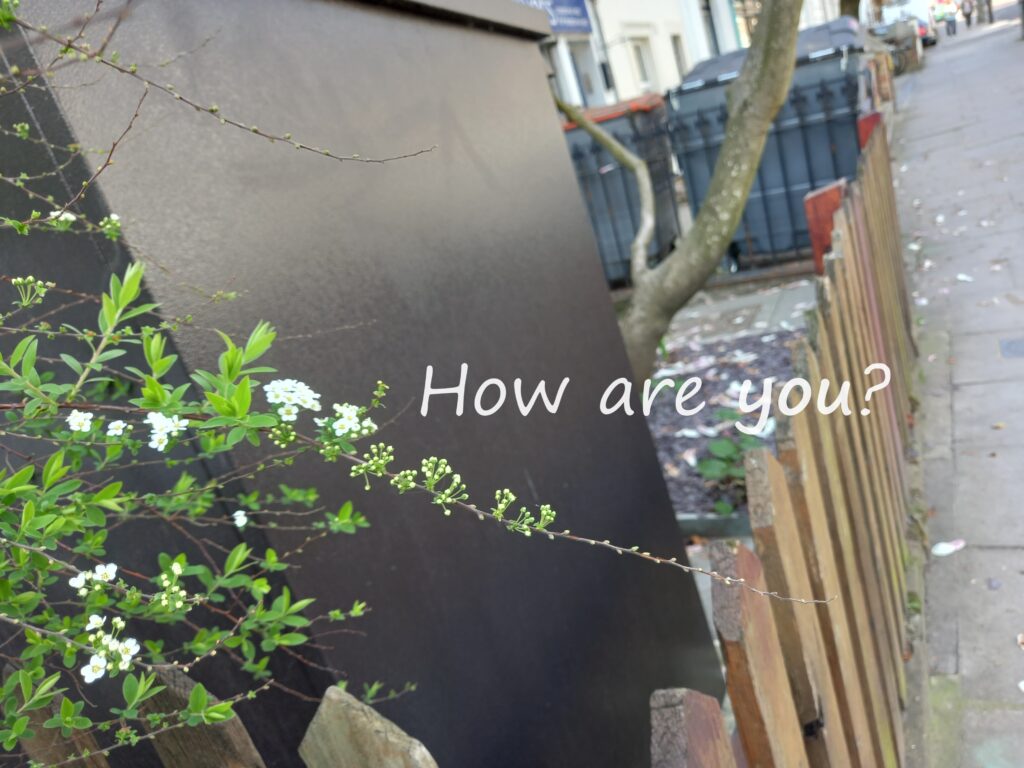
The Chinese version is after the English one.
中文版本在英文版本下。
People can feel sad and angry; it’s perfectly normal, isn’t it?
When a person loses someone or something important, they need to go through a process of grieving: from denial to acceptance, to properly mourning for a period, to getting life back on track, to finding meaning from the loss to enrich their future life… Each stage is so important.
When a person experiences unfair treatment, they may feel anger. Healthy anger draws a reasonable boundary between oneself and others, between right and wrong; it is the first line of defence for self-esteem and conscience.
However, if a person feels that expressing sadness is a sign of weakness, making a fuss over trivial matters, and doesn’t allow themselves to grieve, then they may have a hard time completing the grieving process as it should be. What could have been completed in a year may take a lifetime to finish. In the end, it may seem “normal” (because there have been no lows), but still be trapped in various shadows.
If a person believes that being angry with certain people is not allowed (for example, parents, relatives, benefactors, etc.), or because we are taught that “forgiveness” is a virtuous quality, as the Bible teaches, skip the process of anger, and jump to an easy forgiveness, it can easily lead to psychological imbalance. For example, redirecting inner anger inward, turning it into self-attack, feeling like it’s their problem, their fault, resulting in a low self-image – this is also a form of psychological distortion.
Sadness and anger are “feelings,” and how we perceive these “feelings” is our “feelings about feelings.”
Some people find it difficult to confront their own issues. One tricky spot may be getting stuck in their “feelings about feelings”.
Many of us don’t pay much attention to our own emotions, when we are enveloped in a great deal of negative energy, we may feel very unfamiliar, confused, and lost. We fear being “abnormal” and want to escape, deny, and act like nothing’s gone wrong, preferably staying in the virtual world and avoiding reality.
Once, a student of mine faced the death of a loved one and asked me if he was sick because he would often think about the deceased, and the shadow wouldn’t go away, making him fear he was going crazy. In fact, when a loved one passes away, there will be lingering thoughts, memories, and even fear of death, all of which are extremely normal reactions. If these reactions are met with fear and anxiety, the distress can pile up, and the energy needed to truly grieve will be lacking. It can turn into something terrifying, like a fearsome “beast,” and the “beast” fed by fear grows larger, creating a vicious cycle.
Here’s another example: a person feels immense guilt for their wrongdoing, and the feeling of self-blame suffocates him, making it unbearable. So, whenever someone mentions words related to the incident, he becomes extremely agitated, and starts to become aggressive. What he is trying to do is to push his feelings of guilt away, not facing them properly. He could apologise to those affected and find a way to make amends. He could seek God’s forgiveness and strength to face his past. But because he fears triggering the nerve of guilt, he retracts, and unable to move forward.
When we encounter friends like this, we should not condescendingly reprimand them for their lack of wisdom. Tell them calmly that in such situations, feeling angry/sad/disappointed/unjust/hopeless/like escaping… is perfectly normal (they really need to know that they are normal, which is more important than you think). Usually, those excessive troubles will naturally fade away. When they can feel grounded and realise that their emotions are not frightening, and can be accommodated properly, then the difficulties they truly need to face will become less scary.
So, can anyone become addicted to negative emotions and be unable to escape? Yes. However, these people, such as indulging in rage or excessive self-pity, are due to specific gaps in life that need filling, and there is nothing about whether or not one accepts their “feelings about feelings”. We don’t need to worry that “accepting our emotions” will lead to addiction, just as we don’t become more prone to illness or seek death as we accept the changes in the seasons and the inevitability of ageing, illness, and death in our life, which, if it does occur, there must be other underlying causes.
對感受的感受
人會悲傷、會憤怒,很正常,是不是?
一個人失去了重要的人或事,需要經過悲傷的歷程:由否認到接受,到好好哀慟一段日子,到生活重回正軌,到從失去中找到意義,豐富往後的人生…… 每一個階段都那麼重要。
一個人遇到不公平的對待,會感到憤怒。健康的憤怒是在自己與他人之間、在對與錯之間,畫出合理的界線,是自尊和良知的第一道防線。
但如果一個人覺得自己悲傷是軟弱的表現、小題大作,不容許自己悲傷,那麼,他將很難完成悲傷本身該有的歷程,本來一年可以完成的歷程,可能一輩子也走不完,到最後看似「正常」(因為沒有低潮過),卻仍困在各種陰影裡。
如果一個人覺得對某些人憤怒是不應該的(例如對自己的父母、親人、恩人等),或者因為我們被教導「饒恕」是值得稱頌的品德,聖經也教我們如此,於是沒有容許自己憤怒過,就跳去了饒恕,亦很容易帶來心理的不平衡。例如將內心的憤怒向內折射,變成攻擊自己,覺得是自己的問題,自己的錯,自我形象跟現實中的自己不成正比,這也是一種心靈的扭曲。
悲傷和憤怒是「感受」,而我們如何看待這些「感受」,便是「對感受的感受」了。
有些人,很難正視自己的問題。其中一個棘手位,可能是在「對感受的感受」上卡住了。
平時沒有接觸和照顧自己的情緒,當有偌大的負能量籠罩住自己,便會感到很陌生、徨惑、不知所措。怕自己「不正常」,然後很想逃避、否定,當沒事一樣,最好永遠窩在虛擬世界,長醉不用醒。
曾有學生面對親人的死亡,他問我,自己是不是有病?因為他會常常想起死者,影子揮之不去,害怕自己瘋了。其實,親人離逝,會有揮之不去的想念、回憶,甚至對死亡產生害怕等等,都是極其正常的反應。如果對這些反應感到害怕和焦慮,困擾便會疊加,真正該悲傷的倒沒有能量去處理,反變成了洪水猛獸般可怕,「猛獸」被恐懼愈養愈大,造成惡性循環。
再舉一個例子。一個人,他為自己的錯事內疚不已,那種自責的感覺令他窒息,難以承受。於是,每當有人提起與事件相關的字眼,他就感到惱怒不已,一副生人勿近的樣子。其實,是他把內心的歉疚感拒諸門外,沒有好好正視。他明明可以向當事人道歉、可以想辦法彌補,但就因為害怕觸動內疚的神經,稍一碰到,感到痛楚,就縮回去了,沒法前進。
遇到這樣的朋友,我們不要用居高臨下的語氣指斥他們的不智。平和地告訴他,在這樣這樣的情況下,感到憤怒/難過/失望/委屈/絕望/想逃避。。。是很正常的(他真的很需要知道自己正常,這比你想像中更重要),通常,那些過多的困擾,就會不藥而癒。當他能站穩腳步,知道自己的情緒並不可怕,容讓負面的情緒存在,那他真正要面對的困難,可怕的程度自會降低。
那,有沒有人會沉溺在負面的情緒中,不能自拔的?有。不過這些諸如放縱暴怒、過於自憐的例子,都是生命裡頭有些特別的缺口需要填補,才會沉溺其中,與接不接受「對感受的感受」,並沒有太大關係。我們從來不用擔心「接受自己的感受」會導致沉溺,就像我們在成長的過程中,接受春夏秋冬、生老病死的變化,並不會導致我們更愛生病,或追求死亡,如果有,那必定是背後別有成因。